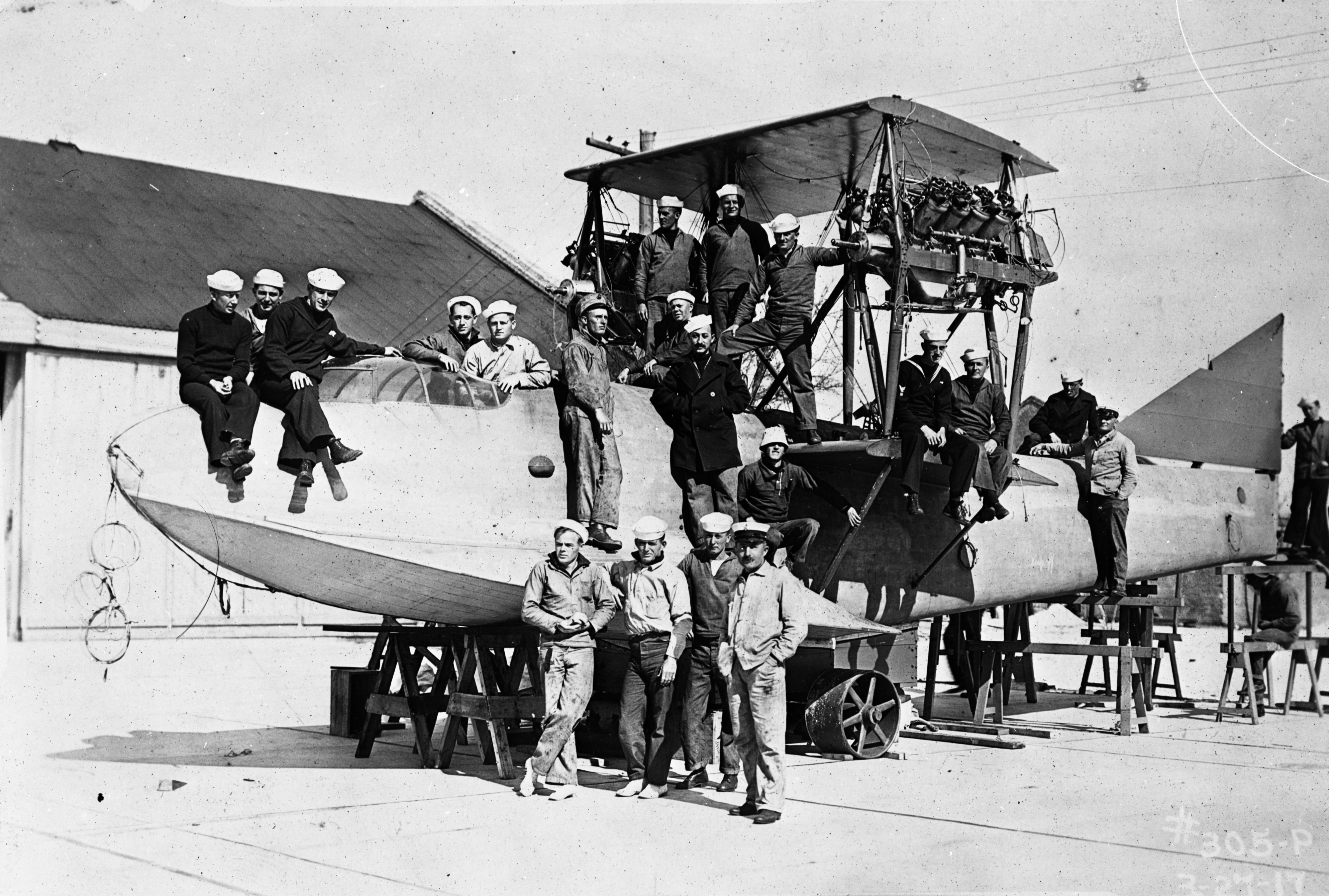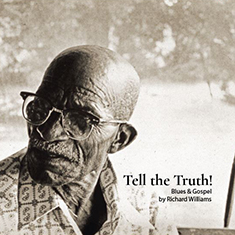Florida Memory is administered by the Florida Department of State, Division of Library and Information Services, Bureau of Archives and Records Management. The digitized records on Florida Memory come from the collections of the State Archives of Florida and the special collections of the State Library of Florida.

State Archives of Florida
- ArchivesFlorida.com
- State Archives Online Catalog
- ArchivesFlorida.com
- ArchivesFlorida.com
State Library of Florida
Related Sites
Tell the Truth!
Blues & Gospel by Richard Williams
Tell the Truth! features blues and gospel music by guitarist Richard Williams and his family. Recorded in Alachua County in the late 1970s and early 1980s, this music provides a unique look into Florida's rural blues traditions.
Documentation of folk music in Florida, especially blues music, was relatively infrequent until the Florida Folklife Program was established in the late 1970s. Prior to that, rural blues music in Florida went largely undocumented with the exception of the work of Zora Neale Hurston, Stetson Kennedy and others in conjunction with the Works Progress Administration (WPA) in the 1930s.
The music of Richard Williams and his family suggests what country blues music in Florida might have sounded like in the early part of the 20th century. Born in 1887 in Jonesville (near Gainesville in Alachua County), Williams started out performing at local parties after learning to play guitar in the phosphate camps where he lived. His repertoire consisted largely of dance numbers known as "set pieces" but also included blues songs picked up from itinerant workers and popular songs from local jukeboxes.
The majority of the recordings on this compilation were made by the Florida Folklife Program for the North Florida Folklife Project on May 27, 1978, capturing Williams in the twilight of his life only three years before his death in 1981. While his technique and memory are not as strong as they would have been when he was in his prime nearly 60 years earlier, this collection provides a unique glimpse into a bygone era of black folk music.
The casual environment of these recording sessions was the typical mode in which Williams played music in his later years. Sometimes accompanied by his wife, Lillie Bell Williams (1902-2000), and daughter, Ella Mae Wilson (1921-2002), Williams often begins a tune spontaneously. Family members come and go, chat, and occasionally join in on a verse or two. The informality of these sessions illustrates the way music passes from one generation to the next – through an unbroken chain of oral history and musical knowledge.
Folklorists Peggy Bulger and Dwight DeVane visited the Williams family home in August of 1977 and recorded "Begging Her to Come Home." This song – the earliest recording of Williams in the Folklife Collection – is unique for its rareness, as it does not appear in popular blues literature.
DeVane returned the following year with folklorists Stephen and Brenda McCallum. They brought better recording equipment in order to document as many songs as possible, including "Polk County Blues," an iconic local standard in the repertoire of many Florida blues musicians. As with "Old Forty," which references a passenger train on the Atlantic Coast Line Railroad that ran through Polk and Alachua counties, the song is regionally specific and infused with the standard blues tropes of hostile women and rambling.
Williams often performs lyrical variations of standards to create new material, a common practice among blues musicians. "Polk County Blues" forms the basis of "I'm Leaving Here, Baby," just as is the foundation of "'Tain't but the One Thing That Grieves My Mind." Many new blues standards were developed by personalizing popular songs with new lyrics, including "John Henry" and "Baby, Please Don't Go," both of which have roots in older songs from the 19th century.
Williams also seamlessly transitions from one song into another, frequently blending them together. "Polk County Blues" segues directly into "Baby, Please Don't Go," which eventually digresses into a walking bassline and the lyric "don't let that bulldog bite you." It is on this track, at 1:38, that Williams first plays a theme that recurs throughout the recording: a coda that typically starts with some variation of "get back" or "farewell, I'm gone." The theme appears at the end of "Trouble in Mind," "'Tain't but the One Thing" and "Careless Love," as well. These informal medleys could be the result of an aged mind or the vestiges of a performer accustomed to keeping the music flowing for dances and parties.
On "I'm Grieving All Night Long," Williams executes some of his most dexterous fingerpicking, which is impressive considering his age and that he was suffering from a chest cold at the time. The song's shifting structure and semi-improvised style encompass all of the themes of his repertoire: joy, grief, contemplation and love.
The latter half of the compilation features the Williams family performing mostly gospel tunes. Ella Mae Wilson was not allowed to sing blues music growing up but instead learned the sacred songs sung by her mother, which led to a reluctance to performing the blues that carried over into her adulthood. This aversion is evidenced by Wilson's request that Williams not "put everything in that" when performing "Careless Love," a prohibition against the song's more risqué verses.
"You've Got to Move" and "Motherless Children" blur the line between sacred and secular, blending the melodic and harmonic structures of blues with the lyrical structure of religious songs. Wilson's earthy alto is counterpointed by harmonies and responsorial moans from her mother on "You've Got to Stand Your Trial in Judgment" and "When the Saints Go Marching In" – all striking examples of the Williams family's gospel repertoire. Even while performing these sacred tunes, Williams was clearly still thinking of the blues, as he starts singing "don't let that bulldog bite you" while his family tries to begin "We'll Understand It Better By and By."
Thanks to the work of folklorists from the Florida Folklife Program and archivists from the State Library and Archives of Florida, the musical legacy of Richard Williams and his family is preserved for future generations, and his recordings will continue to provide a glimpse into the rich history of Florida's blues music.
Download the playlist as a ZIP file containing 320kBps MP3s.
1. Begging Her to Come Home 
Recorded August 8, 1977, by Peggy Bulger and Dwight DeVane in Jonesville
(S1576, C77-33)
2. Polk County Blues 
Recorded May 27, 1978, by Dwight DeVane, Brenda McCallum & Stephen McCallum in Jonesville
(S1576, T78-328)
3. Baby, Please Don’t Go 
Recorded May 27, 1978, by Dwight DeVane, Brenda McCallum & Stephen McCallum in Jonesville
(S1576, T78-328)
4. I’m Leaving Here, Baby 
Recorded May 27, 1978, by Dwight DeVane, Brenda McCallum & Stephen McCallum in Jonesville
(S1576, T78-328)
5. John Henry 
Recorded May 27, 1978, by Dwight DeVane, Brenda McCallum & Stephen McCallum in Jonesville
(S1576, T78-328)
6. Richard and John [spoken interlude] 
Recorded May 27, 1978, by Dwight DeVane, Brenda McCallum & Stephen McCallum in Jonesville
(S1576, T78-328)
7. Tain’t but the One Thing That Grieves My Mind 
Recorded May 27, 1978, by Dwight DeVane, Brenda McCallum & Stephen McCallum in Jonesville
(S1576, T78-328)
8. Trouble in Mind 
Recorded May 27, 1978, by Dwight DeVane, Brenda McCallum & Stephen McCallum in Jonesville
(S1576, T78-328)
9. I’m Grieving All Night Long 
Recorded May 27, 1978, by Dwight DeVane, Brenda McCallum & Stephen McCallum in Jonesville
(S1576, T78-328)
10. Old Forty 
Recorded May 27, 1978, by Dwight DeVane, Brenda McCallum & Stephen McCallum in Jonesville
(S1576, T78-328)
11. You’ve Got to Move 
Recorded May 27, 1978, by Dwight DeVane, Brenda McCallum & Stephen McCallum in Jonesville
(S1576, T78-328)
12. In the Morning (When the Dark Clouds Roll Away) 
Recorded May 27, 1978, by Dwight DeVane, Brenda McCallum & Stephen McCallum in Jonesville
(S1576, T78-328)
13. You’ve Got to Stand Your Trial in Judgment 
Recorded May 27, 1978, by Dwight DeVane, Brenda McCallum & Stephen McCallum in Jonesville
(S1576, T78-328)
14. Careless Love 
Recorded May 27, 1978, by Dwight DeVane, Brenda McCallum & Stephen McCallum in Jonesville
(S1576, T78-328)
15. When the Saints Go Marching In 
Recorded May 27, 1978, by Dwight DeVane, Brenda McCallum & Stephen McCallum in Jonesville
(S1576, T78-329)
16. We’ll Understand It Better By and By 
Recorded May 27, 1978, by Dwight DeVane, Brenda McCallum & Stephen McCallum in Jonesville
(S1576, T78-329)
17. Motherless Children 
Recorded March 16, 1980, by Dwight DeVane, Brenda McCallum & Stephen McCallum in Jonesville
(S1576, T81-19)
Features
Territorial Legislative Council Records, 1822-1845
Documenting Florida's legislature prior to statehood
State and County Officer Directories, 1868-1969
Lists of Florida's state and county officials either elected or appointed between 1868 and 1969.

Guide to Military Records and the Wartime Experience
A guide to government records and manuscript collections relating to service members and the wartime experience.
Dust Tracks
21 tracks from Hurston's time documenting African American culture for the WPA in 1930s Florida.
History Day 2025
Resources for Florida History Day from the State Library and Archives of Florida.
 Listen: The Folk Program
Listen: The Folk Program